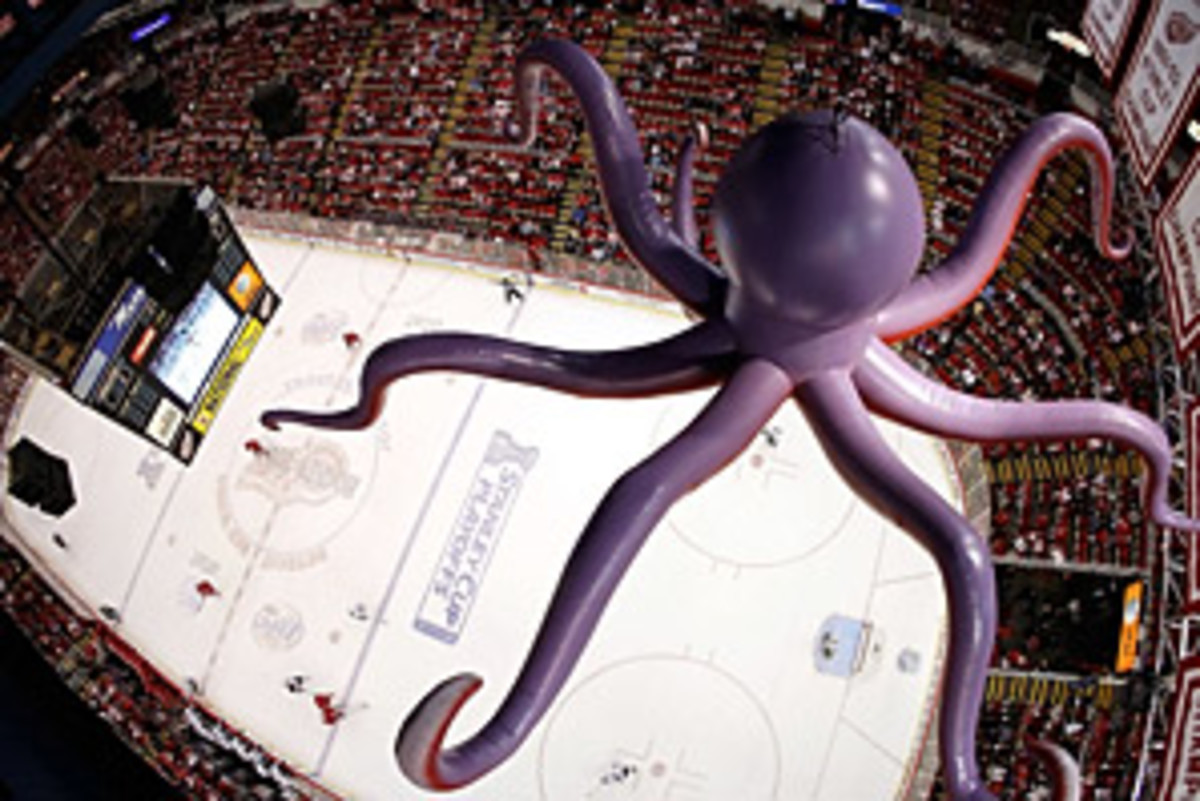NHL could be on thin economic ice
It was fitting that the NHL opened its season with four games overseas last week, because with the U.S. economy being what it is, the league may need every koruna, krona and euro it can get its hands on.
"The big fear is that if the economy continues to fall, fans will simply have to make a choice as to not only how they pay their bills, but which bills actually get paid," said an NHL insider who spoke to SI.com on the condition of anonymity. "If it gets to that point, entertainment costs -- and let's face it, we're in the entertainment business -- are going to take a hit. A lot of us are going to take a big hit."
Sources tell SI.com that some eminently successful franchises have been feeling the pinch of late, including old-guard clubs such as Boston and the Southern expansion teams, notably Phoenix, Florida and Atlanta. Moreover, while luxury suites in the biggest markets (New York, Toronto, Chicago) are mostly sold for this season, the money that comes from beyond those sales, such as from in-building food, could fall substantially. In the smaller markets, if teams don't sell out their general-public seats in the form of season tickets, the impact is expected to hit faster.
"Boston has always been in the top three or four in terms of income, but that wasn't the case last season, and with seats available [the TD Banknorth Center is not sold out for this season], they could see an even bigger drop," said the NHL insider. "If it's happening there, imagine what it's like for teams that have an even smaller fan base or, worse, especially high overhead. The Bruins have been around a long time, a lot of their major expenses are behind them. If you have high building costs or big loans on your building, or your team and your ticket income starts to fall, you've got a serious problem."
Complicating the issue is the league's revenue-sharing program. Teams needing that money to stay afloat must meet league-stated goals on attendance and revenue in order to qualify. That provision was put into the latest collective bargaining agreement by the more well-heeled teams that didn't want to write revenue-sharing checks to clubs that weren't able or willing to improve their product and simply wanted a cash-grab.
Reaching the cap automatically incurs payroll costs of $56.7 million. Then comes the price tags for insurance, pension and other costs, which can add another three-to-four million dollars. That's before you factor in the minor league and scouting operation, arena maintenance and lease, non-hockey payroll and travel expenses. If a team has to budget for revenue sharing, it will be looking at $80 million or more in yearly operating costs.
"Obviously it's less if you're closer to the floor," said the insider, "but if you can't generate enough income to make payroll -- and some teams can't -- it's almost impossible to produce enough from the other streams to cover the shortfall. If that happens, you could lose some of your revenue-sharing funds and that makes it even tougher."
Another problem is the recent move to sign young players to long-term contracts, such as the 15-year, $67.5 million deal given two years ago to New York Islanders goaltender Rick DiPietro. For many clubs, it's a way of protecting their best kids from the ever-decreasing age of free agency (a product of the latest CBA). But those teams now have long-term fixed costs for payroll but no similar lock on ticket revenue. Ticket prices across the league have risen (in some cases as much as 20 percent) and not only are salaries fixed, but contracts are also guaranteed for their length of term, even if a player is injured, has a major falloff in production or simply runs afoul of community appreciation.
Long-term deals are things that commissioner Gary Bettman has said he would not encourage, but teams have them, and the commitments frighten some of the financial people at the club level.
In recent interviews with such media outlets as Business Week and Canadian Press, Bettman talked about the positives in the league, such as record overall attendance last season for the third straight year, and U.S. TV ratings for the 2008 Stanley Cup Finals that were the highest since the 2004-05 lockout. He insisted he's happy with the league's obscure cable TV partner, Versus, and that the much-maligned salary cap -- an instrument that has seen the cost of doing business rise every year since its inception after the lockout -- is also a plus for business. But he also admitted that a lot could change as the economic crisis unfolds, and that no one would be immune from it. "But its exact impact is unpredictable and not something we're feeling yet," he said.

































